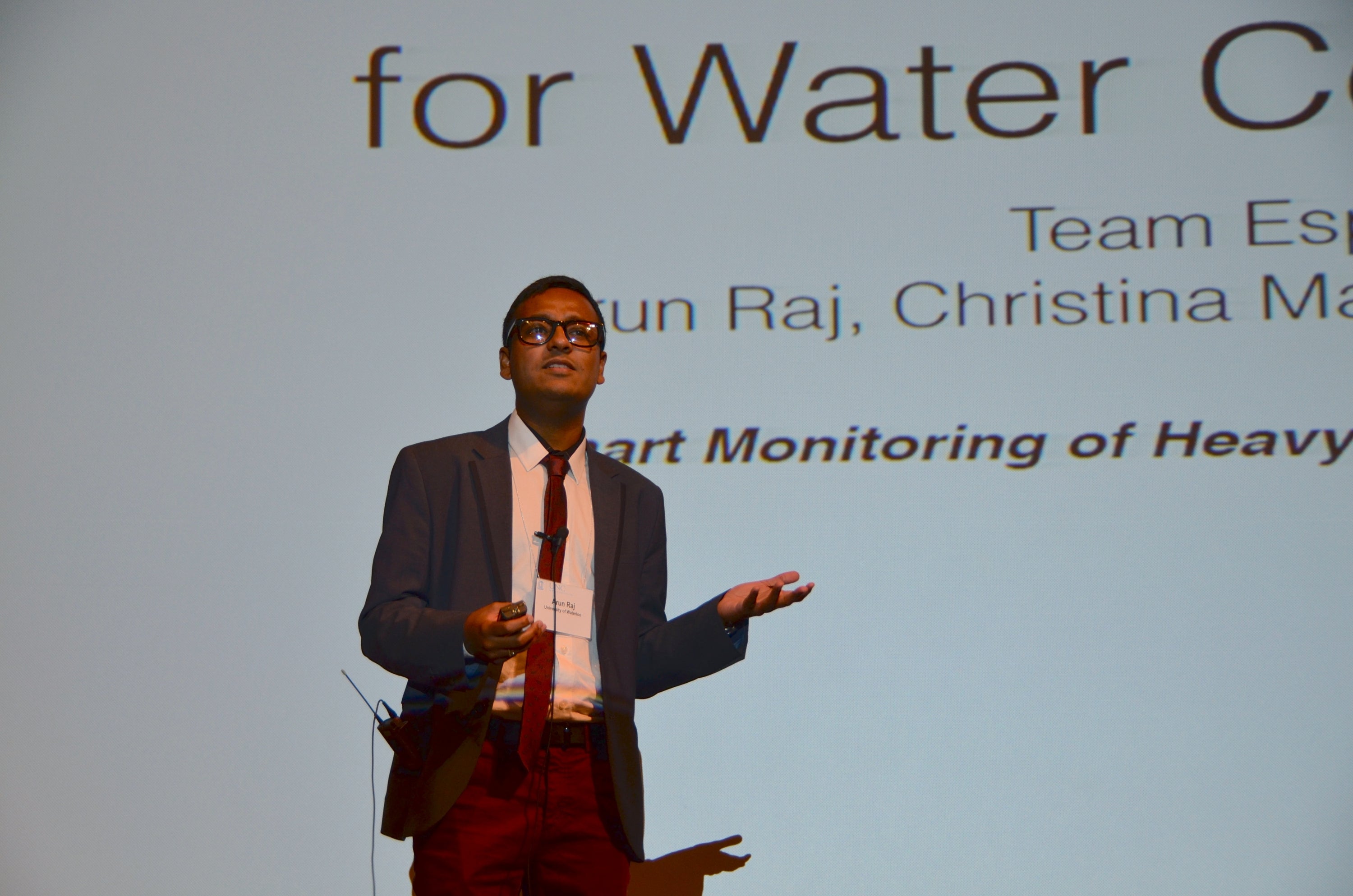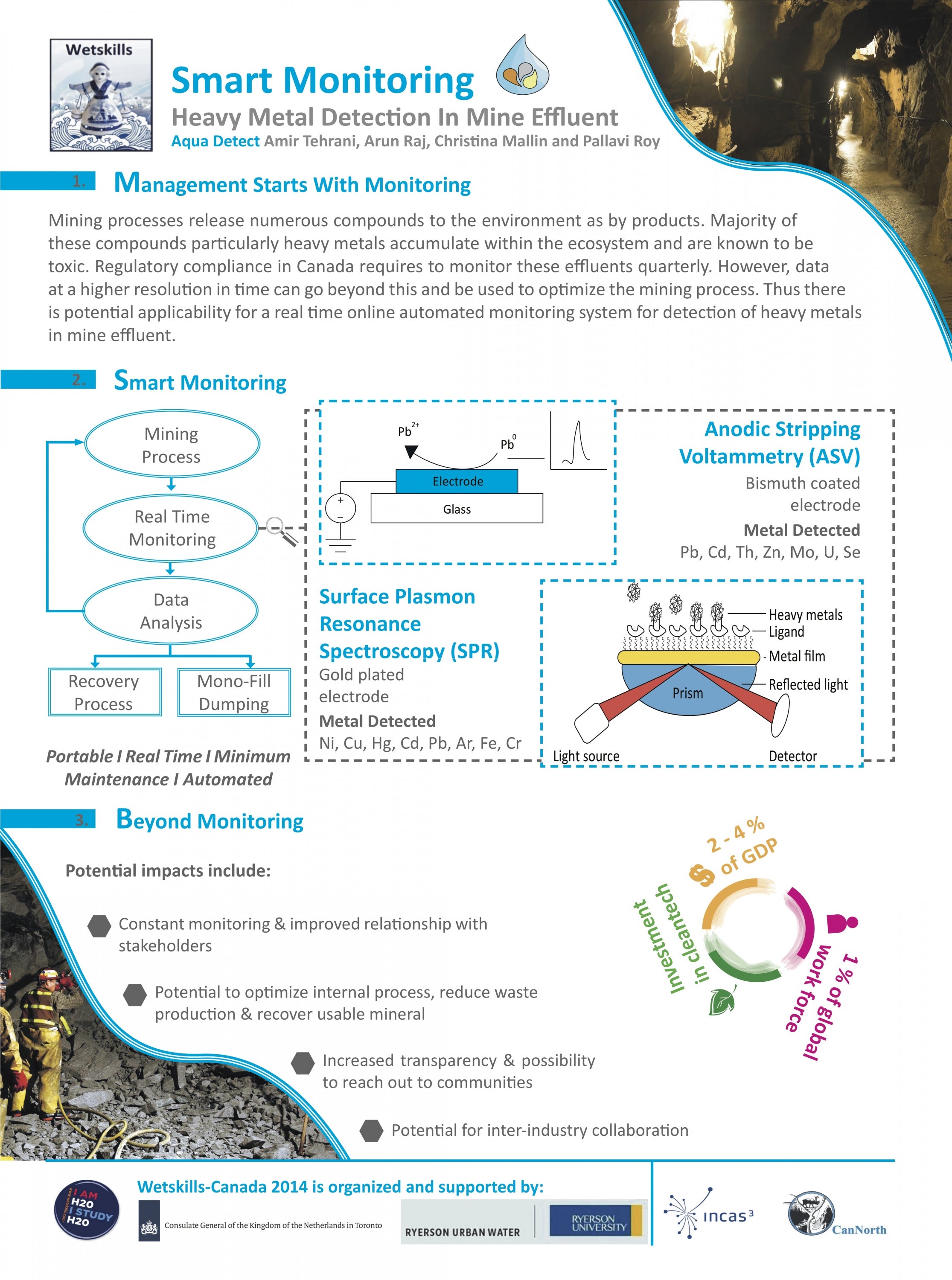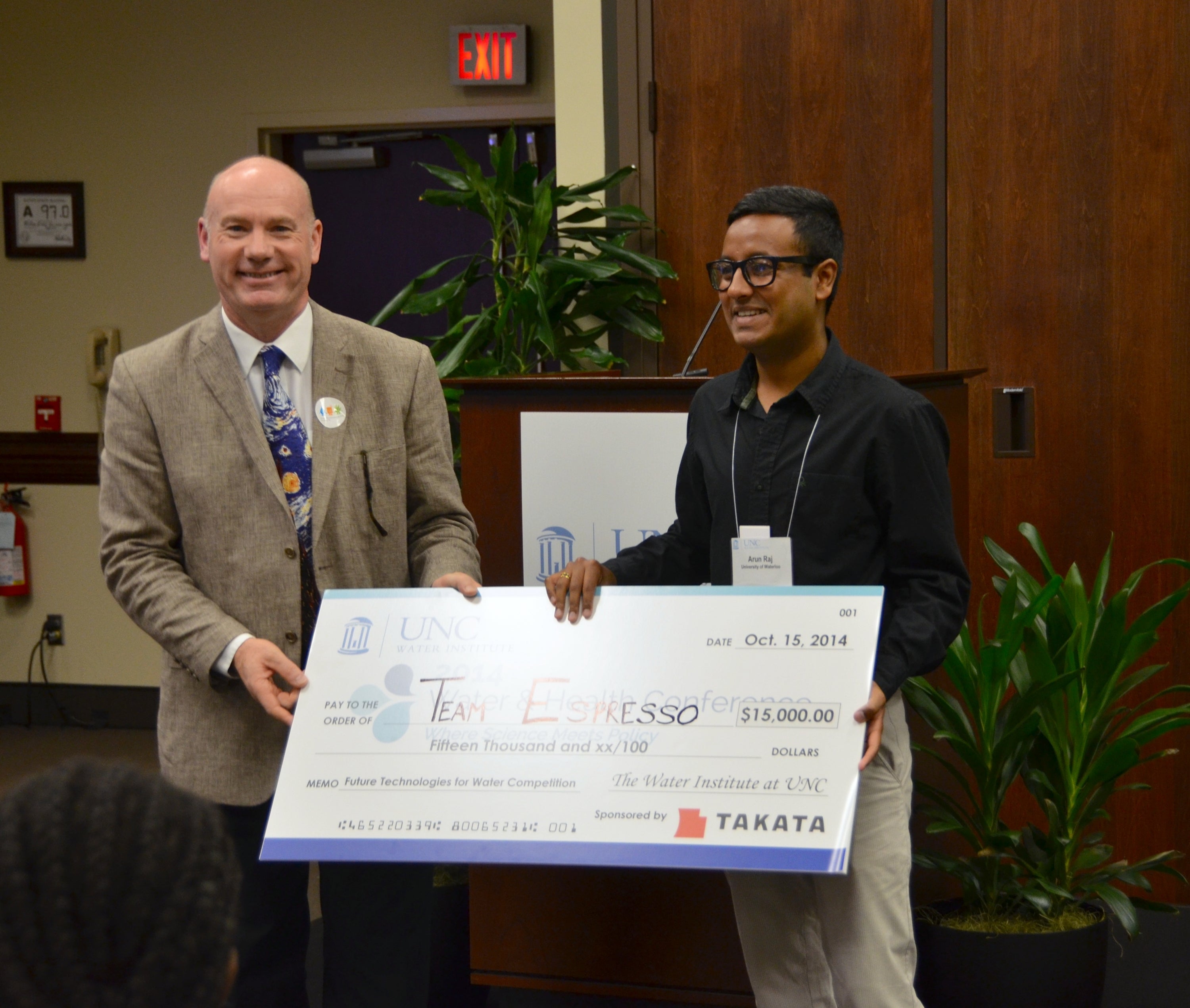Student wins $15,000 to take innovative mining solution to next phase

Arun Raj, current Sustainability Management graduate student presenting his idea.
Arun Raj, a second year Master of Sustainability Management student and his team mates recently won first prize, taking home $15,000 and mentorship to take their idea to the next stage at the 2014 Future Water Technology Competition organized by the University of North Carolina and Takata Corporation. We recently sat down with Arun, a current student in the Sustainability Management Program, to learn more.
How did you hear about this competition?
Interestingly enough, I saw a tweet from the University of North Carolina about their annual water and health conference and the Future water technology competition sponsored by Takata corporation.
It was on my way back home from Wetskills water challenge organized by the Dutch Consulate in Toronto, where we first developed the idea and came together as a team. I was sponsored by the Water Institute UW to attend the workshop.
What was your innovative idea?

The team's poster board explaining their innovative idea
As you can see in the poster board, the idea centered around tailing ponds, which is where the effluent from mining operations goes, as mining is a very water intensive process. Currently in many mines, a technician is only mandated to check mine effluent samples to detect heavy metals once every three months. My idea was using land use planning and industrial ecology principles that I learned in Dr. Michael Wood’s class, to transform this monitoring process from this stagnant reactive state to proactively and dynamically monitoring effluent that comes out of mining process in real time, leading to better segregation for waste water streams and metal recovery.

What did you win?
Out of 75 teams that entered, our team took first prize! We received $15,000 and we’re using that money to take our idea to the next phase. We also receive mentorship from an advisor and office space for a year.
What are the next steps to take this to the next level?
We are undertaking a feasibility study to determine the economic viability of the proposed technology. Waste segregation in a mine requires a lot of space and controlled effluent channels, which requires a big capital cost. The feasibility study is focused on determining the long-term financial benefits for the mine by employing the proposed technology.
How did you become interested in Water and Sustainability?
It was an accident- but a great one! I started at Galgotias College of Engineering and Technology in Delhi in Electronics and Communication and from that degree got a job working for an IT firm but had 2 months before I started. I volunteered for an organization called FORCE, which focuses on urban water security in Delhi as Delhi is semi-arid, water scarce urban environment. I enjoyed it so much that I started working full time with them for 2 years instead of taking the IT job.
What advice would you give other students interested in taking their innovative idea forward?
I would say to actively look out for opportunities to showcase your ideas within your field. Look for a mentor to assist and guide your efforts. Big or small they all count!
Why did you join the Sustainability Management program?
I decided to pursue graduate studies to increase my knowledge in the field. The Sustainability Management Program was a perfect fit as it's very diverse. Because I didn’t have and environmental background/training I wanted something that gave me a solid foundation that shows the linkages and the system. The program shows how broader policy, business and culture fit in with sustainability. I also like that you can design your thesis around your personal interest, which important as I'm passionate about water.